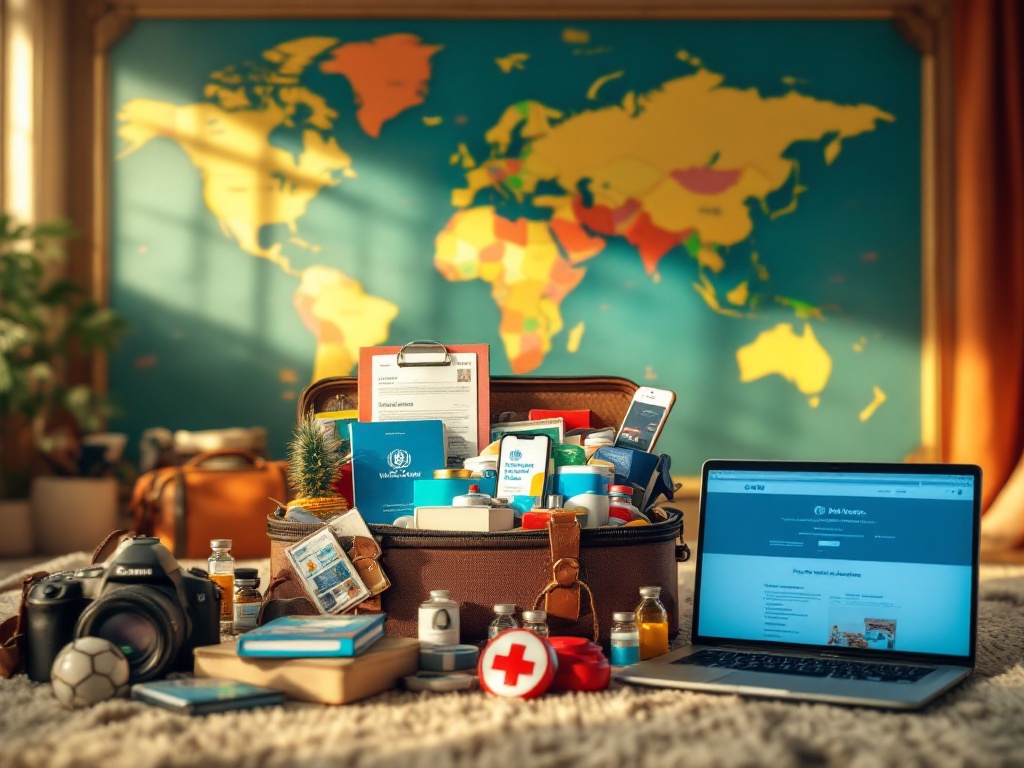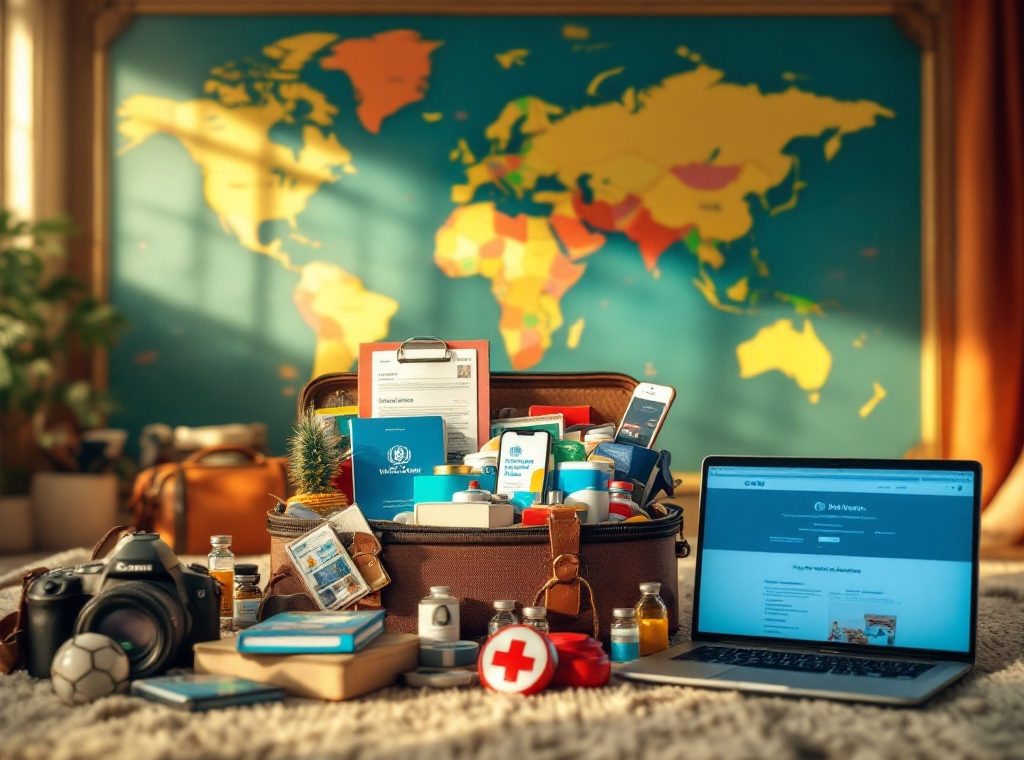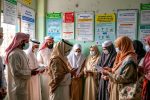What Are WHO Updates for Travelers
Planning a trip? Safeguard your health with crucial travel advisories and disease outbreak updates from the World Health Organization (WHO). Stay informed on recommended vaccinations, necessary precautions, and region-specific health risks. Learn how to access vital resources from the WHO website, local health departments, and travel clinics to ensure a healthy and safe journey. Empower yourself with knowledge – read more now.
Important information

- The WHO provides crucial travel health updates on disease outbreaks, travel advisories, and recommended vaccinations.
- Travelers can find WHO updates on the WHO website, social media, local health departments, and travel clinics.
- Checking for updates regularly, especially close to the departure date, is vital given the changing global health landscape.
- Recommended vaccinations, like those for polio, diphtheria, and yellow fever (depending on the region), are important aspects of travel preparation.
- Protective actions for safe travel include necessary vaccinations, good hygiene, travel insurance, and being aware of local medical facilities.
Understanding WHO Updates for Travelers
The World Health Organization (WHO) provides travelers with crucial health updates. This includes information on disease outbreaks, travel advisories, and recommended vaccinations. You can find this information on the WHO website, through local health departments, and at travel clinics. Updates are frequent, especially during health emergencies. However, their timing can vary based on the global health situation. Travelers should check these resources regularly, particularly close to their departure date. The WHO also shares information through social media and partnerships. Subscribing to their alerts ensures real-time updates.
Stay Informed, Travel Safe
Staying informed about travel health notices is vital for safe and healthy trips. Awareness of potential hazards allows travelers to take necessary precautions.
- Get vaccinated, if necessary.
- Pack any needed medications.
- Take steps to prevent mosquito bites.
WHO Updates Empower Travelers
WHO updates provide essential details for travelers. This includes travel advisories, outbreak news, and vaccination recommendations. Accessing these resources empowers travelers to make informed decisions and understand potential health risks at their destinations.
What Are WHO Updates for Travelers?
Stay informed about health risks for safe travels by checking the World Health Organization (WHO). The WHO provides crucial travel updates on their website and social media channels, covering potential health threats, travel advisories, and vaccination recommendations. These resources help travelers understand potential health issues at their destinations. The WHO increases update frequency during outbreaks or health emergencies. Check these resources frequently, especially close to your departure date. You can also find helpful information through local health departments and travel clinics.
Importance of Staying Informed on Travel Health Notices
Travel health notices are crucial for safe and healthy trips, providing key information about health risks at your destination. Staying informed about outbreaks, required vaccinations, and recommended safety precautions empowers travelers to mitigate potential health problems. To ensure accuracy, rely on official sources like governmental health agencies and the WHO.
Assessing Health Risks Before Travel
Research potential health risks at your destination. Consult your doctor or a travel health professional for personalized advice.
Refer to reliable resources like the WHO and CDC for insights into disease outbreaks, required vaccinations, and recommended precautions.
Research the quality and accessibility of local medical facilities, clean water availability, and sanitation.
Pack a comprehensive first-aid kit with essential medications and supplies.
For up-to-date information, refer to:
- WHO website, for travel advisories and disease outbreak updates.
- CDC website, for travel health notices detailing region-specific health risks.
Pay close attention to travel health notices, which provide detailed information on:
- Region-specific health risks.
- Recommended vaccinations.
- Preventive measures.
- Necessary precautions.
How to Seek Information on Infectious Disease Risks
Before traveling, research potential health risks at your destination using reliable sources like the World Health Organization (WHO) and the Centers for Disease Control and Prevention (CDC). Check your government’s travel advisories for the latest information. Consult your doctor for a personalized risk assessment and travel recommendations.
Understanding Travel Health Notices
Official travel health notices provide crucial health information for specific destinations. These notices detail potential health risks, required vaccinations, and recommended precautions. Consulting these resources helps travelers make informed decisions and effectively prepare for health challenges abroad. The information is readily available from various sources:
- the WHO website,
- public health organizations,
- travel clinics.
Health professionals can also offer valuable guidance.
Vaccination Requirements for Travelers
The World Health Organization (WHO) offers essential vaccination guidance for travelers. This includes routine immunizations like polio and diphtheria, among others. Depending on your destination, yellow fever vaccination may be required or recommended. For the latest details and destination-specific requirements, consult WHO’s International Travel and Health publication.
Vaccination Recommendations: Polio, Diphtheria, and Yellow Fever
Stay up-to-date on routine immunizations, such as polio and diphtheria. Yellow fever vaccination is crucial for travel to regions with active transmission. Plan ahead and get vaccinated at least ten days before departure for optimal protection.
Protective Actions for Safe Travel
Stay healthy and safe during your travels by checking the World Health Organization (WHO) website for health risks and travel advisories specific to your destination. Preventive measures like vaccinations and good hygiene practices are essential. Travel insurance that covers medical emergencies is highly recommended. If you get sick while traveling, see a local doctor immediately and have your emergency contacts and insurance information handy. In case of a disease outbreak at your destination, stay updated with WHO alerts and follow their recommendations, which may include postponing or canceling your trip. Ensure your vaccinations are current and take all necessary precautions.
Minimize Mosquito Bites
- Use insect repellent.
- Wear long sleeves and pants.
- Sleep under a mosquito net.
Prepare for Health Emergencies
- Pack a first-aid kit.
- Research local medical facilities beforehand.
- Familiarize yourself with your insurance policy.
- Carry emergency contact information.
Steps to Prevent Mosquito-Borne Diseases
Shield yourself from mosquito bites by using insect repellent on any exposed skin. Opt for a repellent containing DEET, picaridin, or IR3535. For further protection, wear light-colored long sleeves and pants, and treat clothing and gear with permethrin. Sleeping under a mosquito net is crucial, especially outdoors or in rooms lacking screens or air conditioning. Whenever possible, choose accommodations with air conditioning and screens. Eliminate potential mosquito breeding grounds around your home by emptying standing water from flowerpots, buckets, and old tires. This simple step will help reduce the local mosquito population.
Use insect repellent: Apply insect repellent to all exposed skin. Choose a repellent that contains DEET, picaridin, or IR3535.
Wear protective clothing: Wear light-colored long sleeves, pants, and treat clothing and gear with permethrin.
Sleep under a mosquito net: This is especially important when outdoors or in rooms without screens or air conditioning.
Choose accommodations with air conditioning and screens: Opt for these accommodations whenever possible.
Eliminate mosquito breeding grounds: Empty standing water from flowerpots, buckets, and old tires around your home to reduce the local mosquito population.
How to Prepare for Health Emergencies and Crises
Before you travel, follow these important steps:
Obtain comprehensive travel insurance.
Make copies of essential documents like your passport and visa.
Research and identify medical facilities at your destination.
Prepare a well-stocked first-aid kit, including necessary medications.
Familiarize yourself with local emergency numbers and procedures.
Establish a communication plan with family or friends to stay connected.
Research potential health risks and recommended vaccinations for your destination.
Consider learning basic first-aid and CPR.

















